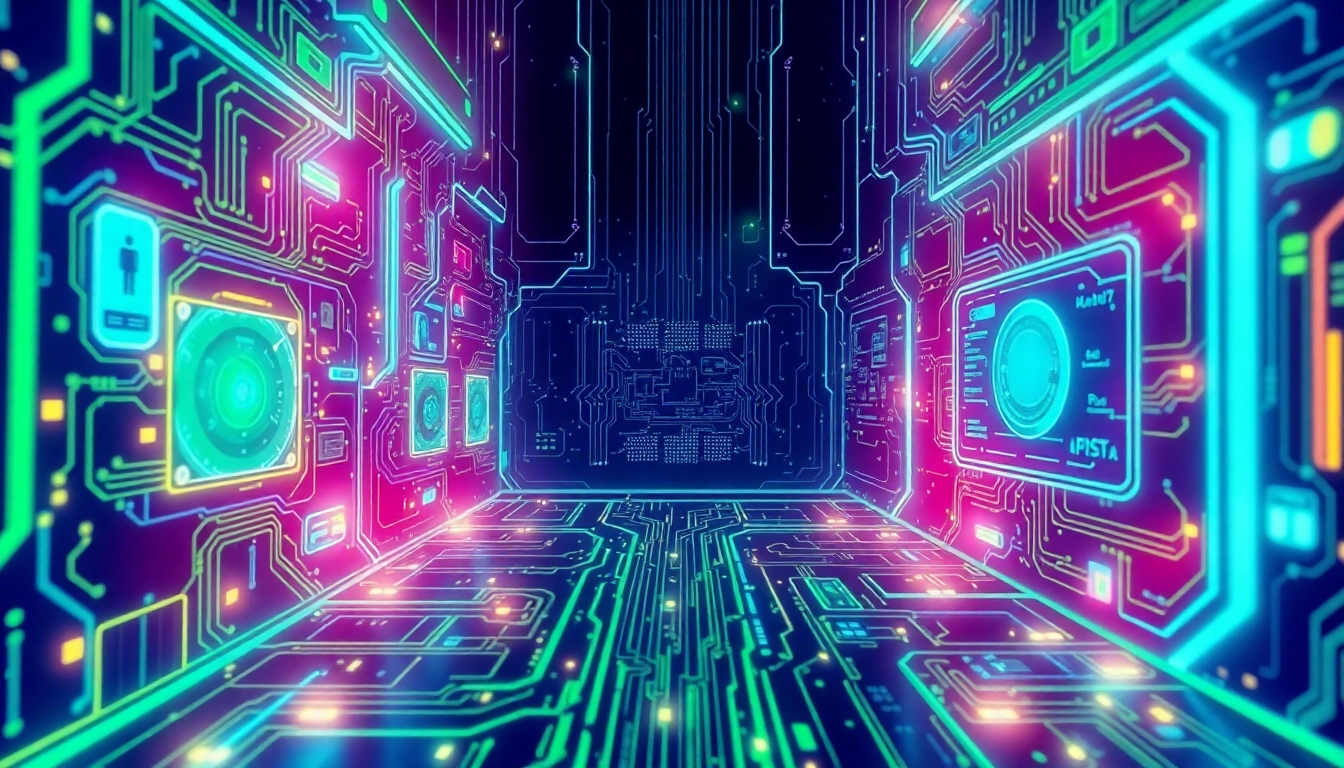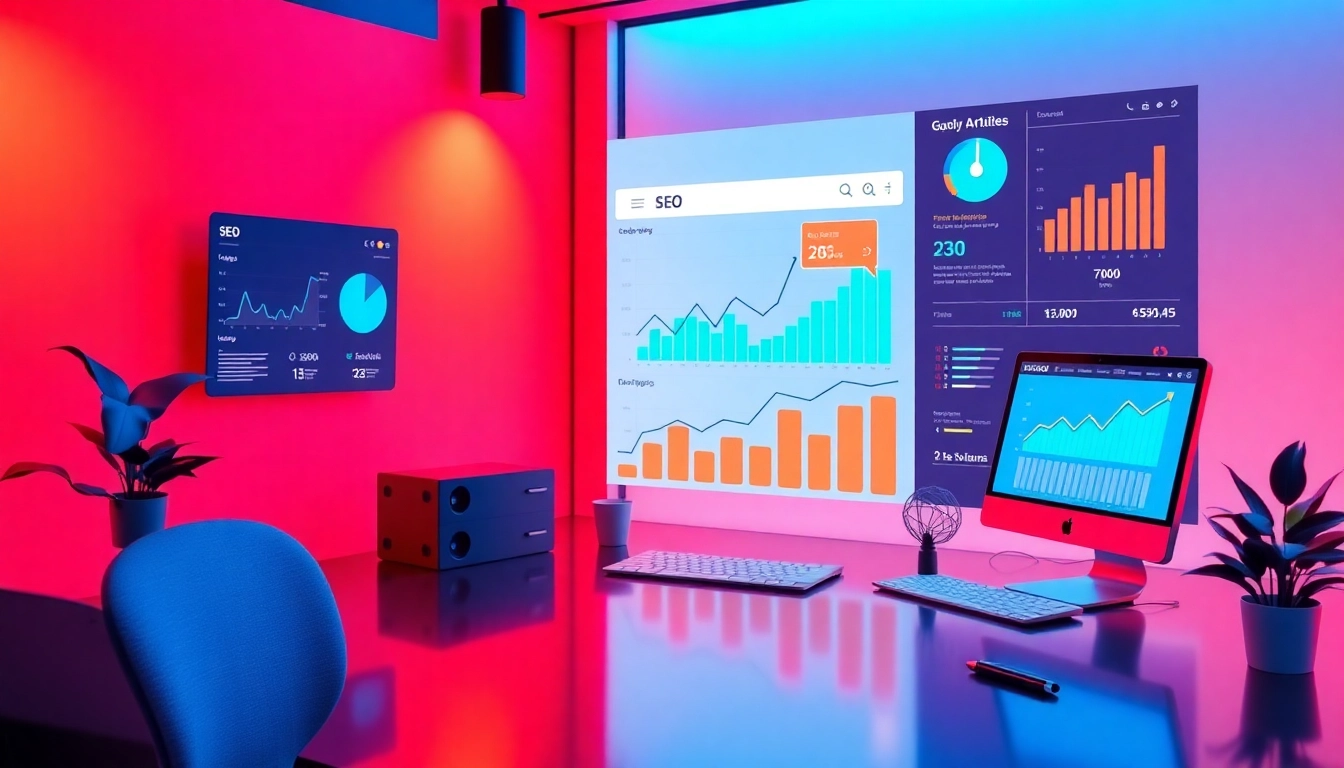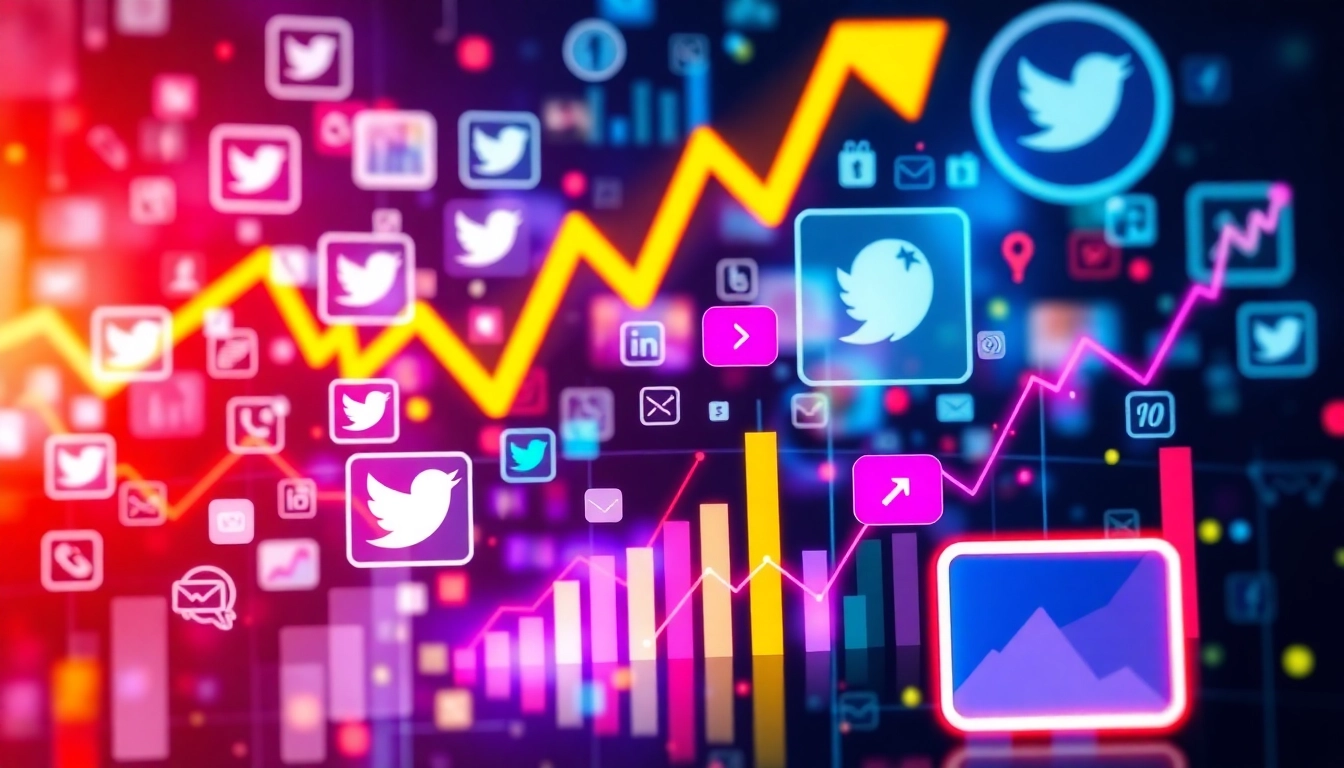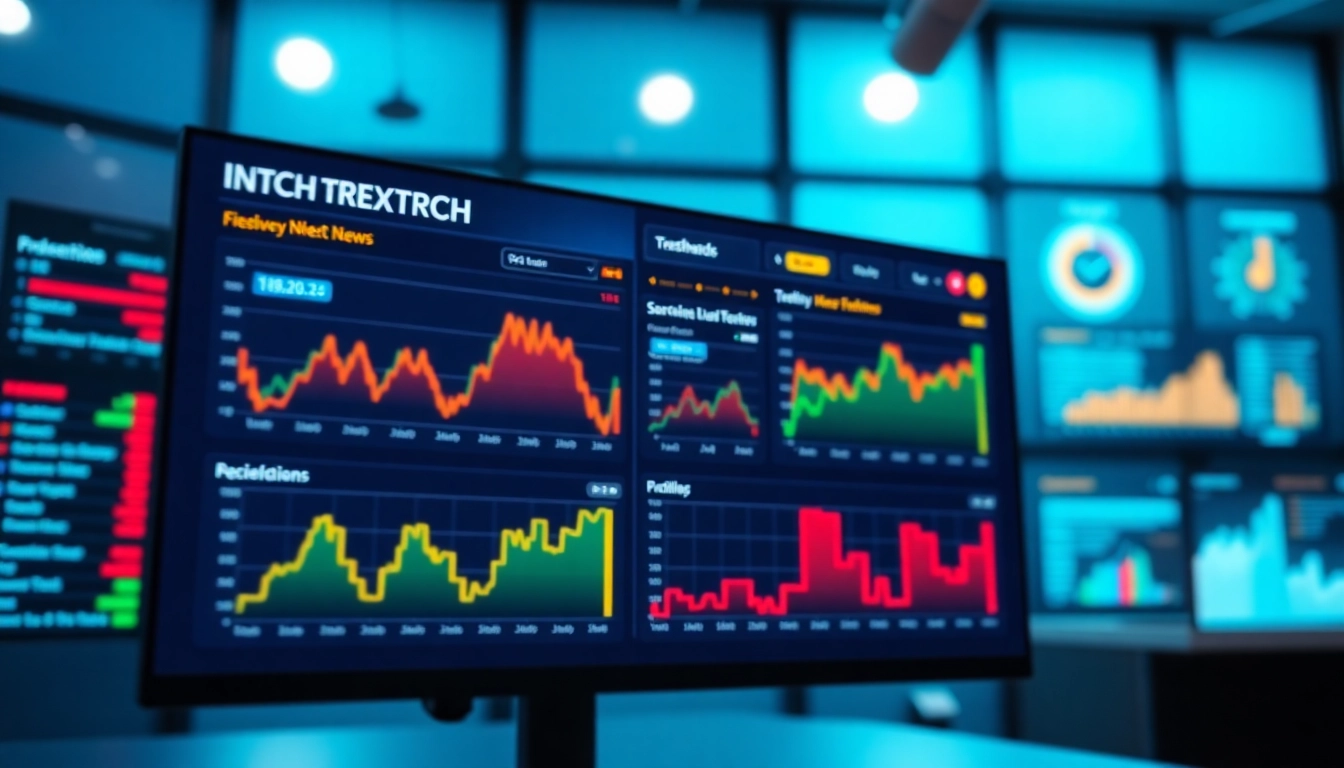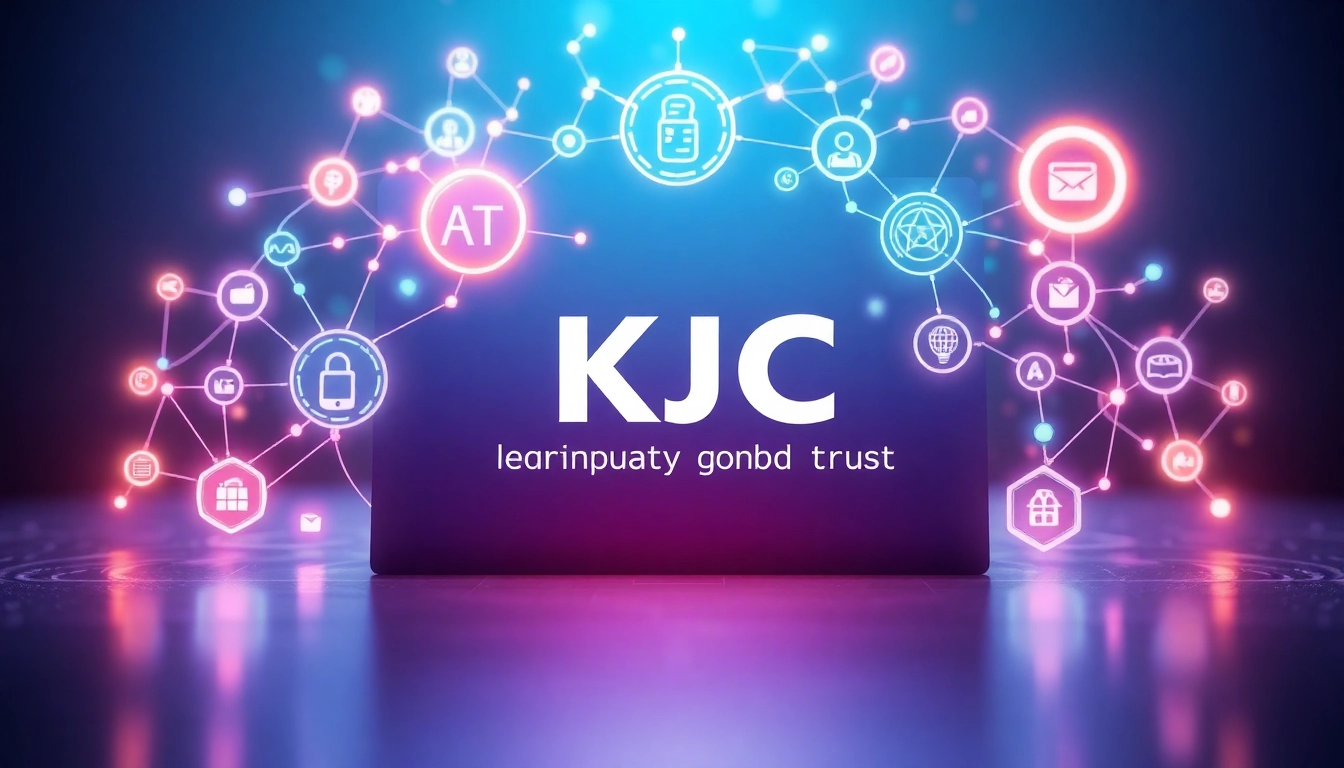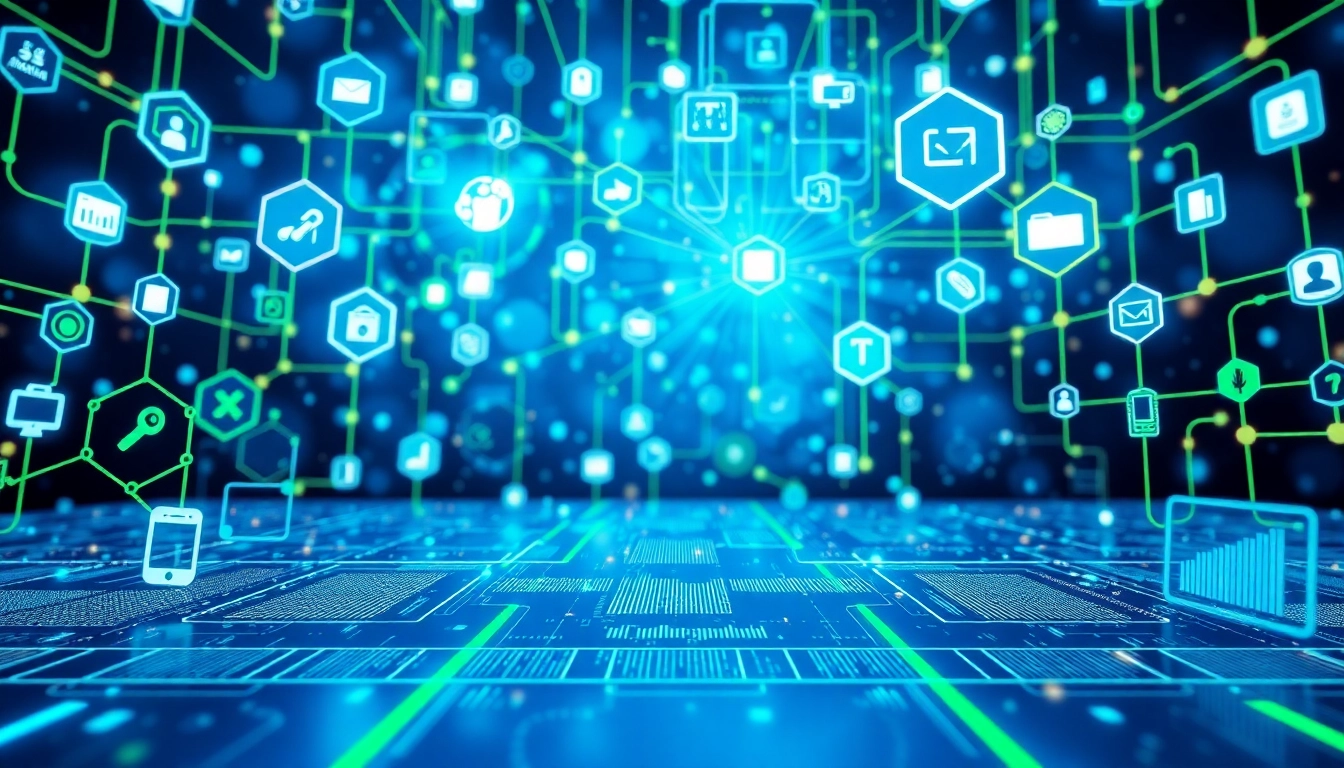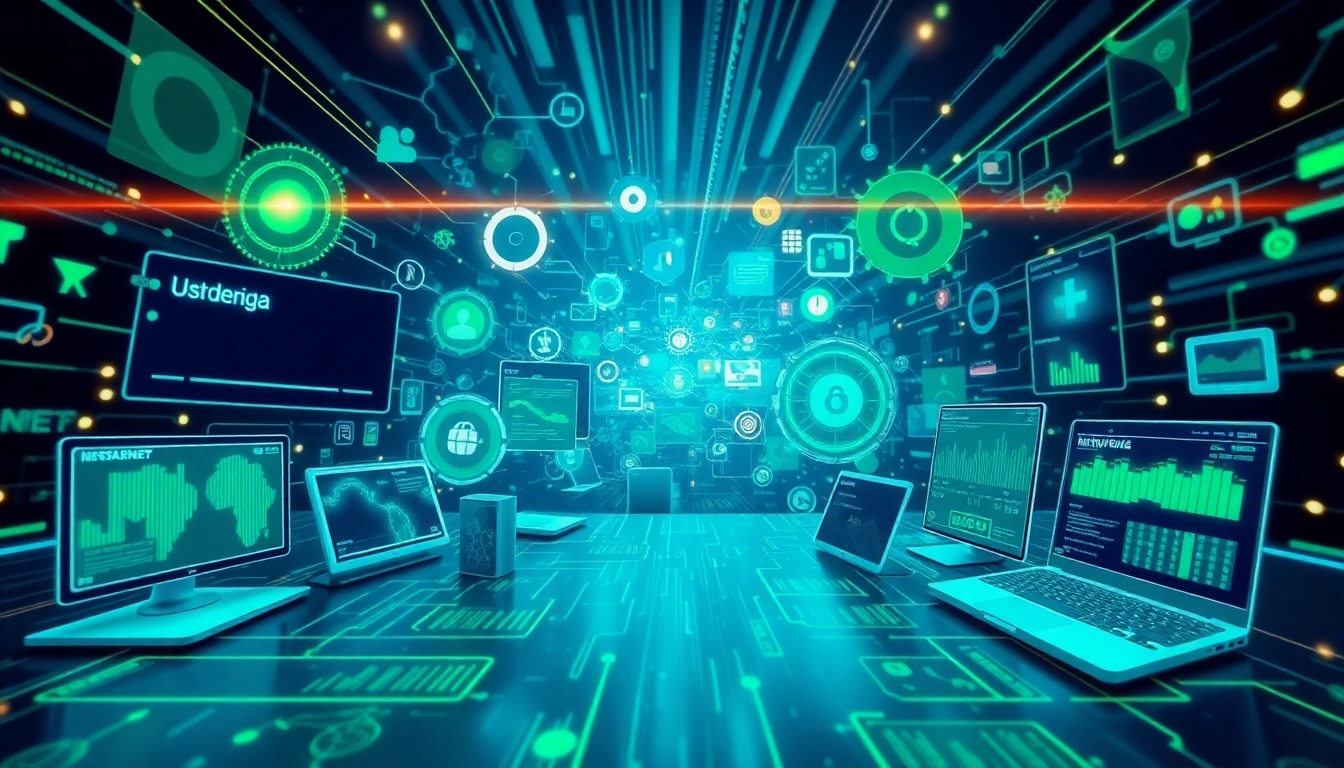What is Technology?
Definition and Overview of Technology
Technology is often defined as the application of scientific knowledge for practical purposes, particularly in industry. It encompasses a wide array of tools, machines, systems, and methods that are designed to improve processes and solve problems. This integration of knowledge is not merely about invention; it represents a comprehensive approach to utilizing existing scientific principles to enrich human life and enhance productivity. From the invention of the wheel to modern artificial intelligence, technology serves as a crucial driver of human progress. As we continue to develop and foster innovation, it’s essential to understand how technology shapes our world and influences every aspect of our daily lives. For more insights and discussions on technology topics, explore resources related to technology.
Different Types of Technology in Use
Technology can be categorized into various types based on its function and application. Understanding these types can help us appreciate the diverse impact technology has on our lives. Here are some major categories:
- Information Technology (IT): This encompasses all technologies related to computing, including hardware, software, databases, and networks used to process and disseminate information.
- Communication Technology: Refers to the tools and platforms that facilitate communication across distances, including smartphones, email, social media, and messaging apps.
- Medical Technology: Involves tools and devices used in healthcare to diagnose, monitor, and treat medical conditions, such as MRI machines, telemedicine, and robotic surgery.
- Transport Technology: Encompasses vehicles and systems designed for transportation, including electric cars, high-speed trains, and aerial drones.
- Energy Technology: Focuses on techniques for producing and using energy efficiently and sustainably, such as solar power, wind energy, and energy-efficient appliances.
Historical Evolution and Impact of Technology
The evolution of technology is a testament to human ingenuity and adaptability. Historically, each technological advancement has sparked socio-economic transformations that reshaped societies. For instance:
- The Agricultural Revolution: Marked by the introduction of farming techniques, this technological shift allowed communities to settle, leading to population growth and the development of civilizations.
- The Industrial Revolution: This period saw the mechanization of manufacturing, which drastically altered labor systems and catalyzed urbanization.
- The Information Age: Characterized by the rise of computers and telecommunications, the Information Age has revolutionized how we access and share information.
Each of these eras reflects the profound impact of technology on human interaction, economic dynamics, and cultural practices.
The Role of Technology in Everyday Life
How Technology Enhances Daily Activities
Technology plays an integral role in enhancing everyday activities, making tasks more efficient and enjoyable. For example:
- Smart Home Devices: Devices such as smart thermostats, lights, and security systems automate home management, improving convenience and energy efficiency.
- Mobile Applications: From banking to grocery shopping, mobile apps have streamlined how we manage finances and fulfill everyday needs.
- Health Tracking: Wearable technology enables individuals to monitor their health by tracking physical activity, heart rate, and sleep patterns.
Examples of Everyday Technology Products
Modern life is filled with examples of technology, many of which we often take for granted. Here’s a look at common technology products that enhance our lives:
- Smartphones: These multifunctional devices serve as communication tools, cameras, and access points for a myriad of applications.
- Laptops and Tablets: Essential for both work and leisure, these devices facilitate productivity and entertainment.
- Home Appliances: Devices like washing machines, microwaves, and dishwashers have transformed home management by saving time and effort.
Challenges Presented by Everyday Technology
Despite the numerous benefits technology brings, it also presents challenges that society must address:
- Digital Addiction: With constant connectivity, many individuals find themselves struggling with technology overuse, impacting their mental health and relationships.
- Privacy Concerns: The more we rely on technology, the more data we generate, which raises questions about who has access to this information and how it’s used.
- Job Displacement: Automation and advanced technologies can lead to significant job loss in certain sectors, necessitating worker retraining and policy adjustments.
Emerging Trends in Technology
Key Innovations Impacting Various Industries
As technology continually evolves, several emerging trends have begun to reshape industries:
- Artificial Intelligence (AI): AI technologies are enhancing decision-making processes and personalizing customer experiences across multiple sectors, from finance to healthcare.
- Blockchain Technology: Beyond cryptocurrencies, blockchain is being adopted for its ability to provide transparent and secure transaction records in industries such as supply chain and healthcare.
- 5G Connectivity: This next generation of wireless technology promises faster connection speeds and lower latency, enabling advancements in IoT and autonomous vehicles.
Future Prospects and Emerging Technologies
The future of technology holds incredible promise in various fields:
- Quantum Computing: As quantum computers evolve, they may outperform traditional computers, unlocking solutions to complex global challenges.
- Augmented and Virtual Reality: These technologies are set to revolutionize sectors including education, training, and entertainment by providing immersive experiences.
- Biotechnology: Advances in genetic engineering and personalized medicine could significantly enhance healthcare outcomes and longevity.
How to Stay Updated with Technology Trends
Keeping abreast of technological developments is crucial for both personal and professional growth. Here are strategies to stay informed:
- Subscribe to Industry Newsletters: Many tech websites and journals provide regular updates on emerging trends, products, and analysis.
- Follow Thought Leaders: Engaging with experts on social media platforms and attending webinars can provide valuable insights into future developments.
- Participate in Online Courses: Learning platforms offer courses that cover the latest technologies and trends, allowing individuals to enhance their skill sets.
Technology in Business and Economic Growth
Impact of Technology on Business Operations
Businesses increasingly rely on technology to streamline operations and improve efficiency. Key impacts include:
- Increased Productivity: Automation of tedious tasks allows businesses to focus resources on core activities, leading to greater output.
- Enhanced Communication: Technologies such as team collaboration tools and instant messaging facilitate clearer and faster communication across teams.
- Data Analytics: Businesses utilize analytics to gain insights into consumer behavior, allowing for informed decision-making and targeted marketing strategies.
Technological Advancements in Marketing
Technology has transformed marketing strategies significantly. Marketing automation tools enable businesses to:
- Personalize Customer Experiences: By leveraging data, marketers can tailor messages and offers to individual consumer preferences.
- Engage Customers More Effectively: Digital platforms provide various channels for real-time interaction, enhancing customer engagement and building loyalty.
- Measure Campaign Effectiveness: Businesses can track the success of their marketing efforts through sophisticated analytics, allowing for continuous improvement.
Measuring the ROI of Technology Investments
Understanding the return on investment (ROI) for technological improvements is vital for organizations. Methodologies to effectively measure ROI include:
- Cost-Benefit Analysis: Evaluate the costs associated with technology implementation against the expected benefits to determine financial viability.
- Performance Metrics: Establish key performance indicators (KPIs) to measure effectiveness in operations, customer satisfaction, and sales growth.
- Comparative Analysis: Compare results against industry benchmarks to assess performance relative to competitors.
Ethical Considerations and Challenges of Technology
Privacy Concerns in a Digital Age
As technology becomes ubiquitous, privacy concerns have escalated. Key issues include:
- Data Security: Companies face threats from cyber-attacks that can compromise sensitive information, necessitating robust security measures.
- Surveillance: The proliferation of smart devices raises ethical questions regarding the surveillance of personal data without consent.
- Regulatory Compliance: Organizations must navigate complex regulations such as GDPR that govern data privacy and protection.
The Digital Divide and Access to Technology
The digital divide represents the gap between those who have access to modern information and communication technology and those who do not. This divide manifests in:
- Socioeconomic Barriers: Individuals from lower socio-economic backgrounds may lack access to devices and internet connectivity, limiting opportunities for education and employment.
- Geographic Disparities: Rural areas often face challenges in accessing high-speed internet, resulting in significant disadvantages compared to urban regions.
- Efforts to Bridge the Gap: Initiatives aimed at providing affordable technology and internet access are crucial in addressing disparities and fostering inclusivity.
Sustainability and Technology’s Environmental Impact
As technology continues to advance, its environmental impact cannot be overlooked:
- Resource Consumption: The production and disposal of electronic devices can contribute to significant waste and environmental degradation.
- Promises of Renewable Energy: Innovative technologies in energy generation can provide sustainable alternatives that lessen dependence on fossil fuels.
- Corporate Responsibility: Companies are increasingly held accountable for their environmental impact and are encouraged to adopt sustainable practices in their operations.
